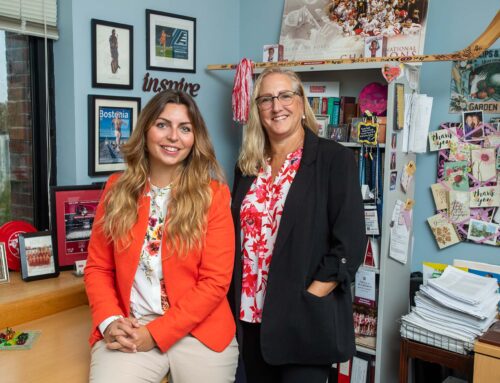Teens say social media is stressing them out. Here’s how to help them.
About 95% of U.S. teens today use some type of social media, and about a third say they use it “almost constantly,” the Pew Research Center found in August. At the same time, teens and tweens are facing a mental health crisis. And research indicates that these two trends are intertwined: that social media can cause depression and lower life satisfaction.
A study on youth insight about social media effects, published in September, reveals a striking awareness about the potential harms social media can have on teenagers’ mental health, but also their persistent attempts to counter these harms.
Walden’s Bob Keane, Ph.D., LICSW, and Assistant Vice President Inpatient Services, along with Kameron Mendes, LMHC, and Walden’s Clinical Director, Inpatient Services, were interviewed on NPR’s “All Things Considered” recently. The article gives practical tips on how we can support and nudge teens toward balanced screen use, while changing our own habits.
In the article, Bob Keane says teenagers in his support group told him the same idea. “The kids were pretty clear to us that they need help,” he says. “They need help figuring out ways to be able to manage this because they told us, clearly, ‘We can’t do it by ourselves.’ “
And the rules need to apply to the whole family, including the parents themselves. “For example, if you have a family dinner, no one has a device at the table,” Keane suggests. “If a parent is driving your adolescent to a game or a practice … the parent can say, ‘If you’re going to want me to drive you, you’re not on your phone, you’re talking to me.’ “
The goal is simple but critical: Get kids back in the habit of socializing face-to-face. Because unlike online interactions, talking to other humans in person “is the glue of genuine human connection,” says therapist Kameron Mendes, who works with Keane at Walden Behavioral Center. And it’s time to replenish that glue.
“Adolescence is when kids start to become their own people in the world,” Mendes adds. “They try on finding friends, connecting with other people and connecting with other types of values and ideas. For that process to take hold and flourish, we really need to restore some level of human connection.”







